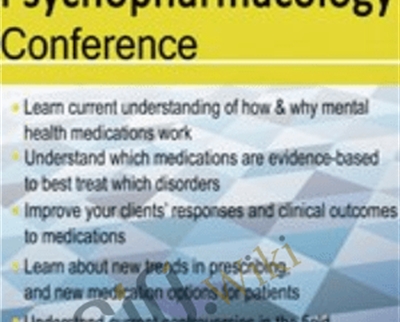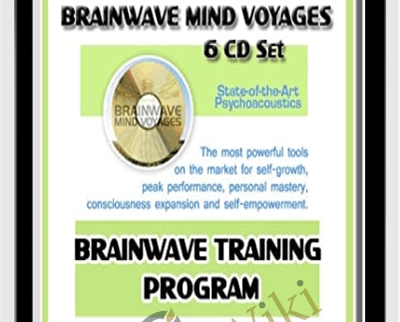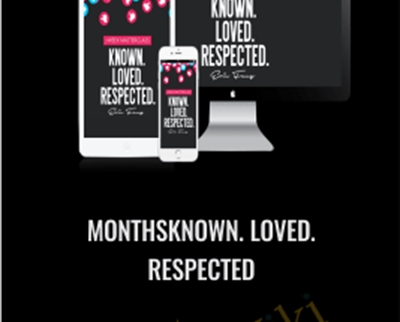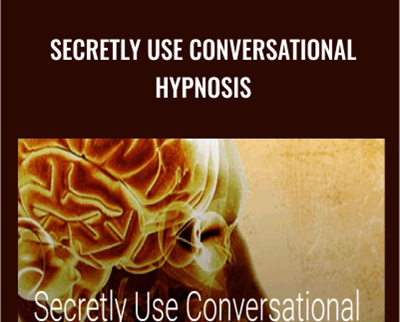2016 Psychopharmacology Conference – Caroline B Williams
$88.00
2016 Psychopharmacology Conference – Caroline B Williams Download. Spend two action-packed days learning about the newest advances in psychopharmacology an…
Salepage link: At HERE. Archive:
- Learn current understanding of how & why mental health medications work
- Understand which medications are evidenced-based to best treat which disorders
- Improve your clients’ responses and clinical outcomes to medications
- Help your clients recognize side effects and learn how to manage them
- Learn about new trends in prescribing, including the impact of DSM-5®
- Understand current controversies in the field
Spend two action-packed days learning about the newest advances in psychopharmacology and contemporary trends in medication management. From her unique perspective as a prescribing clinical psychologist, Caroline teaches psychopharmacology thoughtfully, with an emphasis on the experience of the client. Caroline’s extensive 17 years of experience in mental health and passion for her clients shine through in the detail and thoroughness of her presentation.
Clients often only have a few minutes with their prescriber and require additional support. It is vital that you are able to answer their questions, help manage side effects and understand drug reactions. This training, designed for counselors, nurses, psychotherapists, psychologists, and other mental health professionals, provides the information you need in order to best help your clients.
This conference allows time for exploration of underrepresented areas, including ADHD, chronic pain, sleep, eating, and substance abuse disorders. Take home specialized guidelines for geriatrics and pregnant or nursing women. Discuss how the DSM-5® may impact prescribing patterns and the use of psychotropics in newly defined diagnoses. In addition to a general ‘nuts and bolts’ review of medications, you will examine case examples, discuss medication controversies and learn the “inside scoop” about newly released medications. Caroline’s engaging style makes her an excellent teacher. She uses metaphors from daily life to illustrate complex neurological and psychological concepts. Her vivid, down to earth teaching approach generates an easy guide for providers.
Her presentation includes many take home points that you can use to teach your clients about mental illness, and how medications work. Update your psychopharmacology knowledge, and discover why attendees rave about Caroline, with comments like, “Wonderful presenter and teacher,” and, “Extremely knowledgeable presenter who was very collaborative with the audience.”
DAY ONE OUTLINE
PSYCHOPHARMACOLOGY
- Alternative treatment approaches
- Drug metabolism concepts
- Drug mechanisms of action- what we know, what we don’t know
- Placebo effects- power & how to get it to work for your client
- When to refer for medication- pearls for increasing client interest and participation
- Developing collaborations with prescribers
- Neurological effects of medication
- Understand the decision-making process for choosing a specific medication
DEPRESSIVE DISORDERS
- Neurochemistry of depression
- Controversy regarding antidepressants and placebo- Who to treat when?
- Types of antidepressants- pearls and pitfalls of different agents
- Managing side effects
- Treatment Resistant depression and drug combinations
ANXIETY DISORDERS & OBSESSIVE COMPULSIVE DISORDERS & TRAUMA RELATED DISORDERS
- Neurochemistry of anxiety
- GAD, panic disorder, phobias
- OCD
- PTSD
- Physiological interventions
- Anti-anxiety medications
- Antidepressants
- The many other options often ignored
- Benzodiazepines: risks and benefits
- How to recognize problematic prescribing and usage patterns
- Getting off benzos: key pearls for success
- Managing side effects
BIPOLAR DISORDERS
- Neurochemistry and symptoms
- The Bipolar Spectrum concept & DSM-5® changes
- Types of mood stabilizers, when to use which and potential adverse effects
- Lithium
- Anticonvulsants
- Atypical antipsychotics
- Augmenting agents
- Effective strategies for improving outcomes for clients
- Using blood levels effectively- what the prescriber may not be watching
PSYCHOTIC DISORDERS/ SCHIZOPHRENIA
- Neurochemistry of psychosis and schizophrenia
- Antipsychotic Medications:
- First generation (typical)
- Second generation (atypical)
- Managing side effects
- Extrapyramidal symptoms and TD
- Metabolic problems- what blood tests are needed and when
- Preventing Diabetes Mellitus
- Recognizing hyperprolactinemia- and why you need to know
DAY TWO OUTLINE
ATTENTIONAL DISORDERS
- Differential diagnosis
- Neurochemistry of ADHD
- Controversy about treatment of ADHD with stimulants
- Substance abuse and ADHD
- Stimulant medications
- Non-stimulant options
- Managing side effects
SLEEP DISORDERS
- Differential diagnosis
- Chicken or the egg? What came first, sleep problems or mental illness
- Controversy about treating sleep problems with hypnotics
- Neurochemistry of sleep problems
- Non-medication sleep interventions
- Hypnotic medications: risks and benefits
- Alternatives to hypnotics
- Recognizing adverse Effects
SUBSTANCE USE DISORDERS
- Neurochemistry of addiction & habit development
- Drugs of abuse and interaction with psychiatric medications
- Caffeine
- Nicotine
- Marijuana (discussion of medical marijuana, cost vs. benefit)
- Others
- When to prescribe for clients with dual diagnosis?
- Medication treatments for addictions
- Alcohol
- Nicotine
- Cannabis
- Opiates
- Exploration of controversy over Suboxone Stimulants
- Behavioral addictions
EATING DISORDERS
- Anorexia, bulimia, binge eating disorder
- Weight gain from psychotropic medications
TREATING CLIENTS WITH COMORBID CHRONIC PAIN
- Neurochemistry implications- why it’s critical to intervene
- When psychopharmacology can help
SPECIAL POPULATIONS: GERIATRIC
- Specialized guidelines for geriatric clients
- Discussion of dementia treatment
- Antipsychotic controversy
SPECIAL POPULATIONS: WOMEN
- Hormonal impact of menstruation on mood disorders
- Pregnancy and breastfeeding-
- Presenting the choices
- Resources for you and your clients
- The dangerous, the concerning, and the possibly good options for psychopharmacology
- Menopause- current knowledge and agents
- New Trends: Genetic Testing and more?
DAY ONE OBJECTIVES
- Describe how mental health medications work.
- Explain how medications are chosen for mood disorders and specific patient characteristics.
- Define the actions, therapeutic uses, and side effects of antidepressants.
- Identify and overcome barriers that block your clients’ success with their medication.
- Discuss options for clients with treatment resistant mood disorders.
- Identify the actions, side effects, and therapeutic uses of antipsychotic medications.
- Describe use of complementary and alternative agents for treatment of mental illnesses.
DAY TWO OBJECTIVES
- Discuss medication treatment options for ADHD.
- Define medication management of sleep disorders.
- Identify medications effective with eating disorders.
- List medication treatment options for substance use disorders and discuss how to effectively incorporate medication assisted treatments into an overall plan for care.
- Describe the interaction between women’s and men’s’ hormone levels and their mental health.
- Distinguish the unique medication considerations for geriatric clients.
Here's an overview of the prominent keywords and a list of famous authors:
Business and Sales: Explore business strategies, sales skills, entrepreneurship, and brand-building from authors like Joe Wicks, Jillian Michaels, and Tony Horton.
Sports and Fitness: Enhance athleticism, improve health and fitness with guidance from experts like Shaun T, Kayla Itsines, and Yoga with Adriene.
Personal Development: Develop communication skills, time management, creative thinking, and enhance self-awareness from authors like Gretchen Rubin, Simon Sinek, and Marie Kondo.
Technology and Coding: Learn about artificial intelligence, data analytics, programming, and blockchain technology from thought leaders like Neil deGrasse Tyson, Amy Cuddy, and Malcolm Gladwell.
Lifestyle and Wellness: Discover courses on holistic health, yoga, and healthy living from authors like Elizabeth Gilbert, Bill Nye, and Tracy Anderson.
Art and Creativity: Explore the world of art, creativity, and painting with guidance from renowned artists like Bob Ross and others.
All the courses on WSOlib are led by top authors and experts in their respective fields. Rest assured that the knowledge and skills you acquire are reliable and highly applicable.
Specification: 2016 Psychopharmacology Conference – Caroline B Williams
|
User Reviews
Only logged in customers who have purchased this product may leave a review.

$88.00












There are no reviews yet.